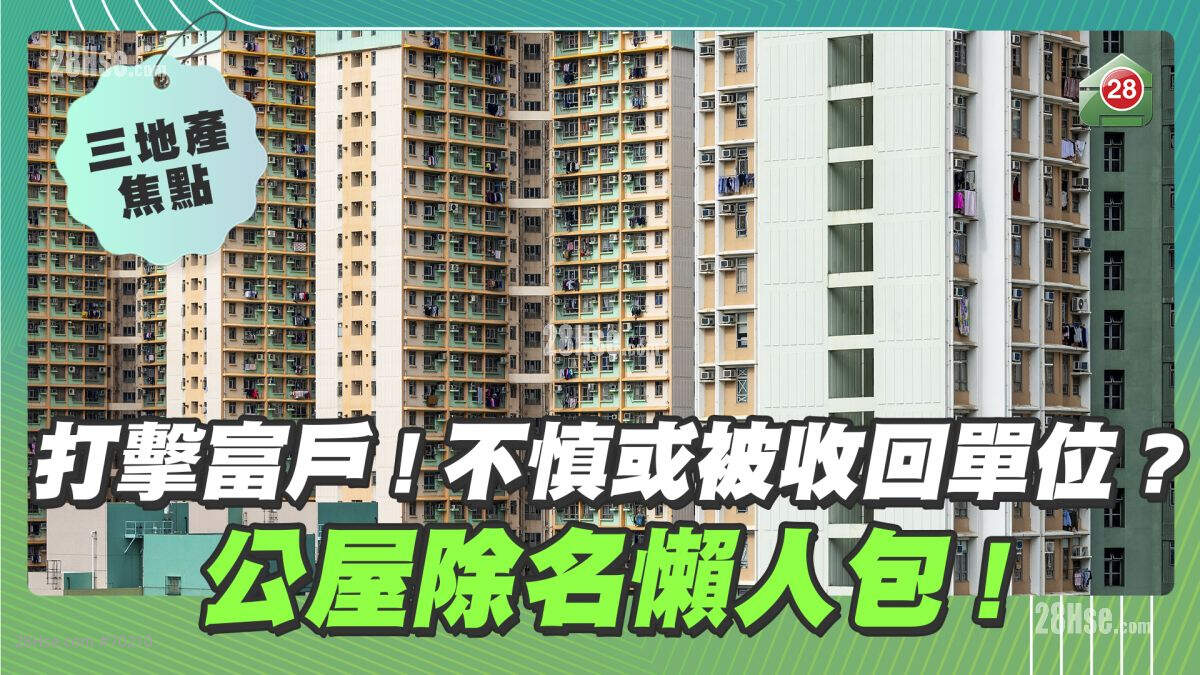The Housing Authority recently tightened the "Well-off Tenants" policy by introducing a four-tier rent adjustment system, replacing the previous three-tier system. Under the new policy, tenants classified as "well-off" will pay up to 4.5 times the standard rent to further combat the misuse of public housing.
Under the revised system, households exceeding the income limit by 2 to 3 times will pay 2.5 times the rent. Those exceeding the limit by 3 to 4 times will pay 3.5 times the rent, while households exceeding the limit by 4 to 5 times will pay 4.5 times the rent. Tenants whose income exceeds the limit by more than 5 times will be required to vacate their units.
The new measures will take effect during the income declaration cycle starting this October. Tenants must truthfully declare their income and assets. Importantly, if a tenant’s income exceeds four times the limit but not more than five times over two consecutive declaration cycles (four years), they will still be required to vacate the unit.
To encourage upward mobility, households classified as "well-off" who voluntarily vacate their public housing units will retain their Green Form eligibility for four years. This allows them to apply for Green Form Subsidised Home Ownership Scheme (GSH) flats, newly built Home Ownership Scheme (HOS) flats, or purchase second-hand HOS flats without paying a land premium. This policy aims to accelerate the turnover of public housing units and reduce the waiting time for applicants.
Given the strict income and asset limits for public housing, many "well-off" families, or those with household members who already own other properties, often choose to remove a family member from the public housing tenancy to avoid their unit being taken away. So, how does the removal process work?
Public housing tenants can visit their estate office or District Tenancy Management Office to request name removal. Alternatively, they can complete the HD10-2C form to apply for the removal of a household member. This form can be downloaded from the Housing Authority or Housing Department websites.
To prevent exploitation of the name removal process, the Housing Authority now requires family members being removed from the public housing record to provide proof of their new residential address, ensuring that they have indeed moved out of the public housing unit.
Once the application and supporting documents are submitted, the Housing Department will assess the case and conduct home visits to verify the information. If the proof of relocation is valid, the tenant will be invited to complete the name removal procedures and update the tenancy agreement accordingly. If the tenant refuses to cooperate or complete the necessary procedures, the Housing Authority will not amend the tenancy agreement. Instead, the internal records will be updated to reflect the removal request. The Housing Department will notify the tenant of the action taken and remind them to complete the name removal process as soon as possible.
It is important to note that after a name is removed from the public housing record, the removed individual cannot continue living in the unit. Doing so would violate the tenancy agreement, which states that only registered household members may reside in public housing. If such a violation is confirmed, the tenancy will be terminated.
Lastly, the Housing Authority has introduced a "Report Public Housing Abuse Award," offering up to HK$3,000 for successful reports of misuse. Tenants are advised not to take risks or engage in any actions that violate regulations.
Like

